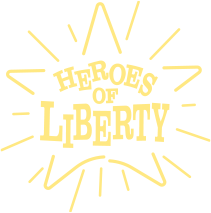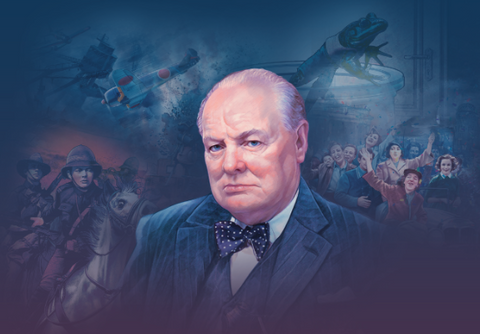When Winston Churchill was just sixteen-years-old, he told his school friends: "I can see vast changes coming over a now peaceful world; great upheavals, terrible struggles; wars such as one cannot imagine; I see further ahead than you do. I see into the future. London will be in danger and in the high position I shall occupy, it will fall on me to save the capital and save the Empire."
The remarkable thing was: he was absolutely right. Almost exactly 50 years later, in the early summer of 1940, the whole of Europe was at the mercy of Hitler’s Nazis. The British army had been forced to retreat until their backs were to the sea at Dunkirk, a small fishing port on the French coast. While the British people were mounting a daring civilian rescue of the soldiers from the beach, it seemed even Britain could not long withstand the Nazi war machine.
Winston Churchill had been made British Prime Minister mere days before the Dunkirk rescue. The previous incumbent, Neville Chamberlain, had been forced to resign on the same day as Germany invaded The Netherlands, Belgium, Luxembourg and France. Just two years previously, Chamberlain had declared “peace in our time” following the signing of an agreement with Hitler. Churchill knew that appeasement of evil could only bring more evil.
"You ask, what is our aim?” Churchill had told his fellow members of Parliament as he took office. “I can answer in one word: It is victory, victory at all costs, victory in spite of all terror, victory, however long and hard the road may be."
Now, with the British Army retreating across The Channel, fleeing for their lives, it seemed that victory had already been lost. All sensible people agreed: Britain must surrender while she still could.
But not Churchill.
Again, he appeared in Parliament. And again, he rallied the British people. “We shall defend our Island, whatever the cost may be,” he told them. “We shall fight on the beaches, we shall fight on the landing grounds, we shall fight in the fields and in the streets, we shall fight in the hills; we shall never surrender.”
It took five more long years, but thanks to the Allied armies, the world was freed from Nazi tyranny. And thanks to the bravery of the Royal Air Force, the British never did have to fight on the beaches, nor in the hills or streets of their own country. But it was to Churchill that the victory was most owed, for it was he who had the courage not to give in during the darkest of hours.
Churchill had many admirable attributes: he was personally brave and adventurous; he was multi-talented, winning the Nobel Prize for literature in 1953; and he inspired others when they needed it. But it was his determination to keep going even when the odds were against him that makes him a great role model for children today.
Three facts you may not know about Winston Churchill
Churchill was born in a Palace
Specifically, Blenheim Palace in Oxfordshire, England, on November 30, 1874. His mother was Jennie Jerome, a beautiful and talented woman who was from a wealthy family from Brooklyn, and his father was Lord Randolf Churchill, a direct descendant of John Churchill, the first Duke of Marlborough. This made Blenheim Palace the family home. Winston was in line to inherit and become the ninth Duke for a time, until his cousin Charles Spencer-Churchill was born.
He is a distant relative of Princess Diana and the future King of England
Before her marriage to Prince Charles, Princess Diana was known as Lady Diana Spencer. Both Winston Churchill and Lady Diana are descended from Charles Spencer, 3rd Earl Spencer (1675-1722) and his wife Anne Churchill, who’s first son inherited the title The Duke of Marlborough. This means that William, Diana's oldest son and future King of England, is also related to Churchill.
His leadership of the British Navy during WWI was a catastrophe
Churchill entered Parliament in 1900, aged just 26. By 1911 he had risen through the ranks to become the First Lord of the Admiralty, the British equivalent to the U.S. Secretary of the Navy. As such, he organized a huge campaign to weaken the Ottoman Empire by seizing the Ottoman Straits at the entrance to the Black Sea. But the fleet never made it that far. Upon reaching the Dardanelles, three allied warships were sunk, three more damaged, and the rest turned back. Three months later a second attempt was made by land, resulting in the disastrous Gallipoli Campaign that cost 250,000 lives and ended in defeat. The catastrophic failure cost Churchill his position as leader of the Navy, but taught him valuable lessons that he would remember for the rest of his life.
Introduce your children to Winston Churchill with Heroes of Liberty's new book: Winston Churchill: Courage in the Face of Darkness. Get it now.






